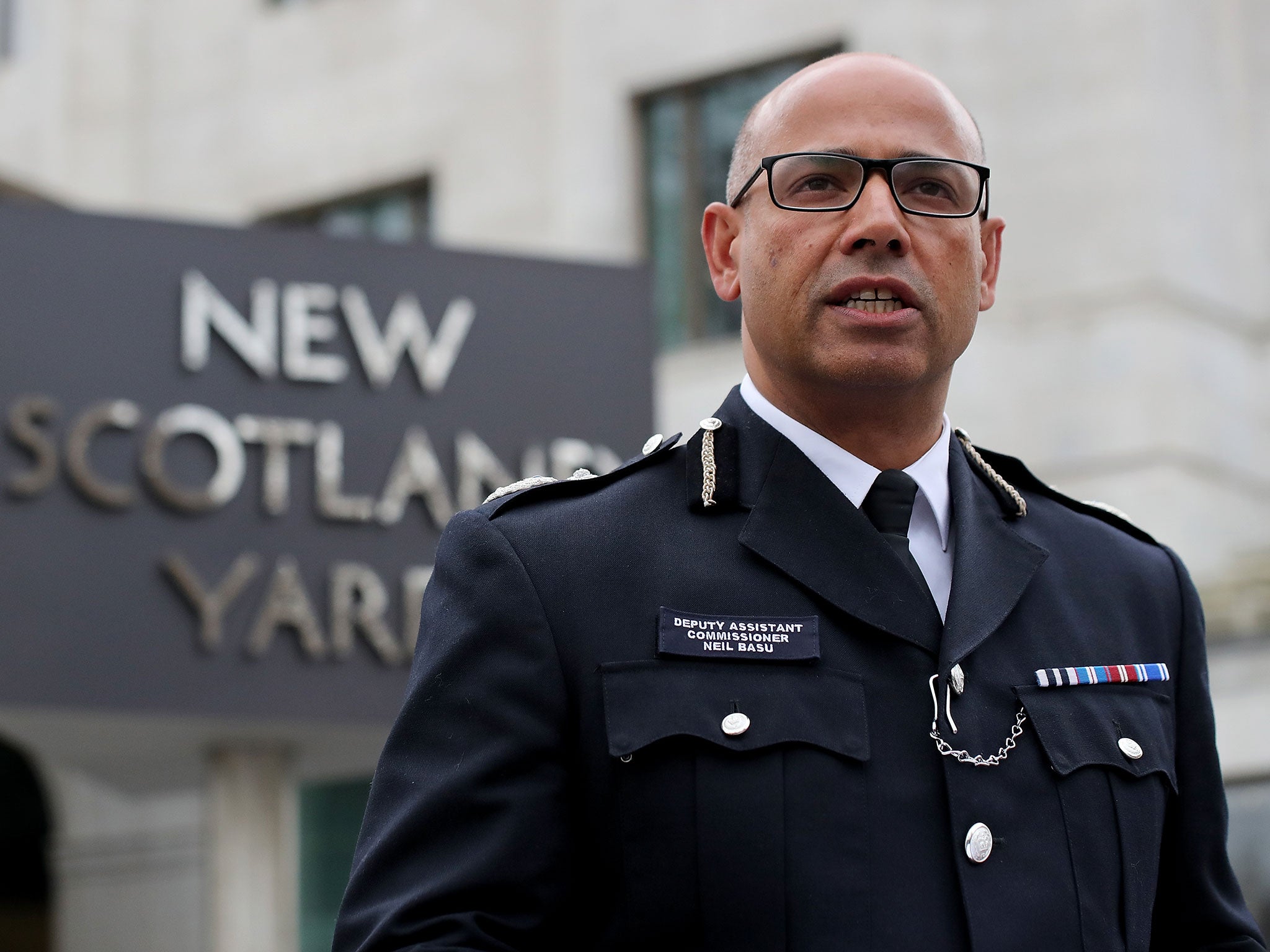Theresa May told police and MI5 to ‘break momentum’ of terror attacks after Manchester Arena bombing
Bombing was followed by two fatal terror attacks within a month in 2017

Theresa May told police and MI5 to “break the momentum” of terror attacks in Britain following the Manchester Arena bombing, a senior officer has said.
Speaking at a public inquiry into the attack, Assistant Commissioner Neil Basu, who is now the head of UK counter-terrorism policing, recalled the then prime minister’s direction.
The suicide bombing, which killed 22 victims, was the second terror attack to strike Britain in 2017 and was followed by two other fatal attacks within a month.
Assistant Commissioner Basu, who was the senior national coordinator for counter-terrorism at the time, said: “Very shortly after [the Manchester attack], Prime Minister Theresa May had effectively turned to policing, my boss Sir Mark Rowley, the Metropolitan Police commissioner, others and the director-general of MI5, and used the phrase ‘You need to break the momentum.’”
Giving evidence to the Manchester Arena inquiry on Tuesday, Assistant Commissioner Basu said a “surge of activity” was triggered as police attempted to crack down on terrorist activity.
He said assets were focused on pursuing known threats, which included 3,000 MI5 subjects of interest and 600 live operations.
“It involved mitigating threat actors at the very earliest opportunity, and a concerted effort from ourselves and MI5 to further disrupt and destabilise the activities of members of proscribed terrorist organisations, particularly al-Muhajiroun,” he said.
Al-Muhajiroun, a banned group formerly led by hate preacher Anjem Choudary, was linked to Khuram Butt, the ringleader of the 2017 London Bridge attack; Khalid Masood, the Westminster attacker; and numerous other terrorists and plotters in Britain.
Salman Abedi, the Manchester Arena bomber, was not associated with the group but had links to foreign fighters and terrorist prisoners, and had voiced support for Isis before the attack.
The bombing, on 22 May 2017, followed Masood’s attack in March that year, the first to be claimed by Isis in the UK.
Less than a fortnight after Abedi’s atrocity, three Isis-inspired terrorists struck at London Bridge.
Two weeks after that, a far-right extremist attacked Muslim worshippers in Finsbury Park and in September 2017 a former Isis child soldier tried to bomb a London Underground train.
Following the London Bridge attack, an operational improvement review was commissioned by police leaders and MI5 to “look at whether there was anything we could learn to help us mitigate terrorist threats in the future”, Assistant Commissioner Basu said.
He said: “We found 103 things to do better in the review. That was a humbling moment.”
The review was not made public for security reasons, but a redacted report was published following assurance by David Anderson QC, the former independent reviewer of terrorism legislation.
He found that security services had dismissed two pieces of intelligence that could have helped them prevent the Manchester attack.
Speaking in December 2017, he was not able to prove the bombing could have been stopped but that it “might have been averted had the cards fallen differently”.
The review and evidence on prevention efforts, and what was known about Abedi before the attack, will be considered by the public inquiry.
Assistant Commissioner Basu said that the attack took place at a time when the security services had an “extreme volume” of cases, following Isis’s call for indiscriminate terror attacks around the world.
“It isn’t the volume that counts, it’s the volatility,” he said. “It’s how hard these attacks are to see coming, how quickly they come, how quickly people are radicalised and move to action, the simplicity of the methods people were using which meant very little planning was required, and therefore how difficult they are to see and stop.”
Assistant Commissioner Basu also gave evidence on the response by counter-terrorism police and senior officers on the night of the Manchester attack.
He recalled being at home when he received a call shortly before 11pm from his deputy, Assistant Chief Constable Terri Nicholson, saying her husband had informed her of a potential suicide bombing at Manchester Arena.
The call was about 25 minutes after the blast, and the inquiry heard that protocol dictated that Manchester’s force duty officer should have called Counter Terrorism Command, who then would have called Assistant Chief Constable Nicholson.
Manchester Bombing Attack: one year on
Show all 10Almost two hours after the bombing, Counter Terrorism Command’s on-duty team “had only a Twitter feed” for information and had not been contacted directly by counterparts in Manchester, Assistant Commissioner Basu said.
“This is not the first time that, for instance, national media footage has got hold of something before anyone in policing has found out,” he said. “So if you happen to have a feed running in the office , you might hear of a major incident before you get officially notified.”
He said that Greater Manchester Police’s force duty officer had a “long list” of duties and that he found out about the attack promptly, albeit in an “unconventional” way.
Paul Greaney QC, counsel to the inquiry, said it would be considering whether the force duty officer “may have been overwhelmed by the amount of responsibilities he had”.
Assistant Commissioner Basu said he felt that the police officers involved in responding to the bombing “did an exceptional job in horrific circumstances”.
But Duncan Atkinson QC, representing some of the bereaved families, said that because he was in London he could only assess what he was being told and did not have oversight of local decision-making. The inquiry continues.
Subscribe to Independent Premium to bookmark this article
Want to bookmark your favourite articles and stories to read or reference later? Start your Independent Premium subscription today.
